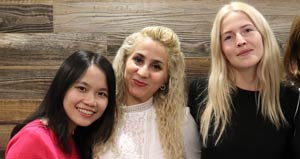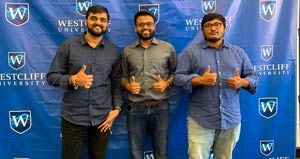
Teamwork, A Few Personal Thoughts
Today, the global society is split into two opposing tribes (globalists and populists), one which is educated and in search of the right answers that come from complex information in a new era of information overload. The other tribe, confused by conflicting sources of information, is seeking simple answers from simply stated problems.
Each tribe has a great deal of passion that their perspective is the only right answer. Each tribe has their leaders whom they admire as gurus who are believed to know better than anyone else.
Chirstensen, the Harvard educator known globally as a business guru and who coined the phrase “disruptive innovation,” claims this idea he wrote about is a scientific theory. In reality, it is not what he suggests, it is not a universal truth that everyone seems to need.
In about the year 2000, Christensen gave a Merrill Lynch lecture about the glory of one disruptive innovation – the tech boom on Wall Street. One month later, the tech bust began.
I love data. I love research. Whenever I entered a new project years ago, I conducted a significant market study, having been trained to do so by the internationally respected firm – Real Estate Research Corp. in Chicago. Its owner and my boss, James C Downs, Jr., coined the phrase “Location, Location, Location” in a book he wrote.
However, I developed a personal habit as a land developer and as an entrepreneur. First, I would collect as much data as I could, and prepare the most thorough study possible. But then, after each study produced conclusions based on data, I would sit down by myself in the middle of the land I was considering to develop, or on the site of the buildings I was considering to construct, and listen only to my heart and mind. In many instances my mind and heart would tell me something contrary to what I learned from the data.
In most all instances, I would follow what I heard from inside my body, as the data were always part of the equation. As a result, I owned one of the first micro-breweries in the US (there were limited data showing consumers would enjoy artisan beers), developed the first community septic field in Indiana (most civil engineers opposed such an idea), and successfully developed a 240 acre multi-use complex on the site of a proposed landfill (most government and community groups initially opposed the idea). In each instance referenced above, the data suggested the ideas were bad and could never work, as there was limited evidence substantiating the ideas could work.
In previous times, Bill Gates and other heads of computing companies concluded that there was no need for home computers in the foreseeable future. If we always relied on data from the past to determine how to move forward, everything would generally then remain the same. Innovators with new ideas would always be held back from moving forward.
I know from my experiences there is not a silver bullet for every problem; but I firmly believe that the more diverse experiences (including both data and personal experiences) we have to draw from, the greater the likelihood is that better conclusions will be made.
I am exceptionally proud of the members of the team with whom I work at Westcliff – with experiences from NASA to the US State Department, assessment leadership, and everywhere in between. When we work together as a team and support each other, the perception is that we are unbeatable as we bring diverse experiences to the table.
Data are really important, but they are limited in scope and don’t necessarily reflect the value of all possible options. Personal experiences are exceptionally important, but are limited to the experiences of each person. Focus groups are important, but often the results are adversely impacted by groupthink and conflict avoidance. Student opinions are definitely important, but sometimes they are framed to represent not what is best for them, but what they see as satisfying personal interests, such as less rigor.
What is important is to consolidate the results of all of these different approaches by our diverse team with the unified objective of trying to identify the best way to move forward. It is a version of the King Solomon approach.
With much pride, we claim to be innovators. As Rudyard Kipling wrote, we follow “less traveled paths.” Our paths are not necessarily supported by historic data, or personal experiences, or surveys, or focus groups, as sometimes winning ideas for the future are not reflective of what has been tried in the past. I am convinced that when we, as a group, but all of these results together and make a consolidated conclusion, we will have winning answers made by a team of outstanding leaders.







